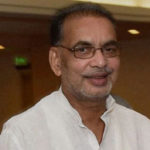Prime Minister Narendra Modi who is in the two days visit of Gujarat, attending the opening ceremony of the 52nd Annual Meeting of the African Development Bank in Gandhinagar with some foreign dignitaries. Prime Minister Modi on his speech at the inauguration of the Annual Meeting of the African Development Bank (AfDB) said that “We are gathered today in the state of Gujarat. The Gujarati flair for business is well known. Gujaratis are also famous for their love of Africa! As an Indian and a Gujarati, I am very happy that this meeting is being held in India and that too in Gujarat.
India has had strong ties with Africa for centuries. Historically, communities from western India, especially Gujarat, and the eastern coast of Africa have settled in each other’s lands. The Siddhis of India are said to have come from East Africa. The Bohra communities in coastal Kenya date back to the twelfth century. Vasco da Gama is said to have reached Calicut with the help of a Gujarati sailor from Malindi. The dhows of Gujarat took merchandise in both directions. Ancient links between societies have also enriched our cultures. The rich Swahili language includes many Hindi words.
During the colonial era, thirty-two thousand Indians came to Kenya to build the iconic Mombasa Uganda railway. Many lost their lives during its construction. Around six thousand of them stayed back and brought their families. Many of them started small businesses called “dukas” and came to be known as the “dukkawalas”. During the colonial years, merchants, artisans and later officials, teachers, doctors and other professionals went to East and West Africa creating a vibrant community which combines the best of India and Africa.
Mahatma Gandhi, another Gujarati, perfected his tools of non-violent struggle in South Africa. He also visited Tanzania in 1912 along with Gopal Krishna Gokhale. Several leaders of Indian origin supported strongly, and fought alongside, the leaders of Africa’s struggles for independence, including Mr. Nyerere, Mr. Kenyatta, and Nelson Mandela. After the freedom struggle, several leaders of Indian origin were also appointed in the Cabinets of Tanzania and South Africa. There are at least six Tanzanians of Indian origin who are now serving as Members of Parliament in Tanzania.”





